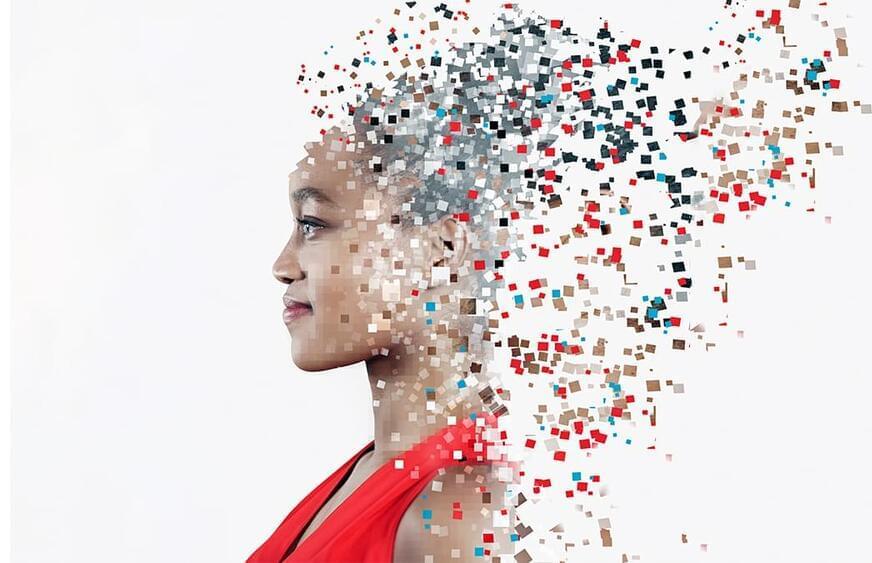Category: privacy – Page 10

Cyclists’ biometric data could show us how to make streets safer
Rather than waiting for multiple crashes to happen at a location before intervening to improve road safety, a new study suggests we can identify dangerous areas proactively — by measuring cyclist stress levels as they navigate city streets.
The challenge: When designing a city’s transportation infrastructure, urban planners must balance the needs of drivers with the safety of pedestrians and cyclists. This is often done through surveys of local residents and best practices learned over time.
This process doesn’t always get it right, though, so sometimes cities have to install safety improvements, such as crosswalks, bike lanes, or stop lights, at dangerous intersections or stretches of road.

Alphabet CEO Ordered To Testify About Private Browsing Confusion On Google Chrome
A lawsuit filed in a California federal court in June 2020 claims that Google Chrome’s “Incognito Mode” is not as private as people think.
Now, Alphabet CEO Sundar Pichai will need to answer questions over whether Google continues to track users even when they’ve activated the browser’s private browsing mode, as first reported by Bloomberg Law.
The case, Brown et al v. Google LLC, was filed on June 2, 2020, assigned to Judge Lucy H. Koh in a U.S. District Court in San Jose, California.
A deposition order was issued on Monday 27 for Pichai to testify in the case for up to two hours, as the plaintiffs say that Pichai has “unique, personal knowledge of relevant issues relating to the Chrome browser and privacy concerns.” Earlier in the case, the court also issued an order for Google’s Chief Marketing Officer, Lorraine Twohill, to answer questions about how the tech giant promoted the browser’s functionality.
Google’s legal team tried to shield Pichai from testifying in the case. They claimed lower-level employees that worked directly on the Chrome browser were better suited to answer questions about how the browser’s private browsing functionality works.
Full Story:
Web 3.0 Is Coming, But Not Everyone Will Love It
Go beyond the hype.
Dubbed as the internet of tomorrow, Web 3.0 seems to be the next big thing that’s going to change our lives by fundamentally reshaping the internet.
Web 3.0 is an upgrade to the Web, a meta technology for business software, a social movement for open data, and a new generation for artificial intelligence.
Large corporations are usually getting hacked, resulting in the exposure of millions of user data, and a McKinsey report from last year shows that almost all industries have got a trust rate of less than 50 percent.
But the new generation of the web, Web 3.0, could solve some privacy concerns as it features the internet on blockchain technology. Storing any data on blockchain makes that data decentralized, making the company’s data usage transparent, thus protecting it from breaches. However, returning the ownership of their data back to consumers could potentially disrupt the tech industry since tech giants would eventually lose access to the data that initially gave them a boost in an already competitive market.
Full Story:

Hacking Fingerprints Is Actually Pretty Easy—and Cheap
People in movies are often quick to resort to sawing off someone’s hand to get past a fingerprint scanner. A report from the Kraken Security Labs Team shows that it would be much easier—and less gruesome—to recreate someone’s fingerprint using a little bit of off-the-shelf wood glue.
Kraken notes that biometric security has become increasingly common as smartphone, tablet, and laptop manufacturers have incorporated fingerprint scanners into their products. These scanners offer a convenient way to access those devices without entering a password.
The report says a fingerprint scanner can be “hacked” by using a picture of the target’s fingerprint, creating a negative in Photoshop, printing the resulting image, and then putting some wood glue on top of the imitated fingerprint so it can be used to trick many commercial scanners.

How Wearable AI Will Amplify Human Intelligence
Imagine that your team is meeting to decide whether to continue an expensive marketing campaign. After a few minutes, it becomes clear that nobody has the metrics on-hand to make the decision. You chime in with a solution and ask Amazon’s virtual assistant Alexa to back you up with information: “Alexa, how many users did we convert to customers last month with Campaign A?” and Alexa responds with the answer. You just amplified your team’s intelligence with AI. But this is just the tip of the iceberg.
Intelligence amplification is the use of technology to augment human intelligence. And a paradigm shift is on the horizon, where new devices will offer less intrusive, more intuitive ways to amplify our intelligence.
Hearables, or wireless in-ear computational earpieces, are an example of intelligence amplification devices that have been adopted recently and rapidly. An example is Apple’s AirPods, which are smart earbuds that connect to Apple devices and integrate with Siri via voice commands. Apple has also filed a patent for earbuds equipped with biometric sensors that could record data such as a user’s temperature, heart rate, and movement. Similarly, Google’s Pixel Buds give users direct access to the Google Assistant and its powerful knowledge graph. Google Assistant seamlessly connects users to information stored in Google platforms, like email and calendar management. Google Assistant also provides users with highly-personalized recommendations, helps automate personal communication, and offloads monotonous tasks like setting timers, managing lists, and controlling IoT devices.

Futurists predict how we’ll one day eat, vacation and work
Forget about Mark Zuckerberg, Facebook and all the talk about a metaverse. The real future will be a world that is convenient and scary and fantastical — at least according to futurologists. As this year ends, here’s a glimpse at what life might be like … one day.
Facial recognition is already common for phones, but “In 30 years it’s quite possible that you will not use a key or even a credit card. You’ll use your face or iris to make purchases and open locks. Recognition will be that good,” said Martin Ford, author of “Rule of the Robots: How Artificial Intelligence will Transform Everything.”
“The scary thing, though, will be if someone hacks your biometric data. Right now you can call the bank to change your pin or cancel a credit card. But you can’t cancel your biometrics.”
Smallest Gadget Ever Made — Devices made by AI
Scientists with the help of next gen Artificial Intelligence managed to create the smallest and most efficient camera in the world. A specialist medical camera that measures just under a nanometer has just entered the Guinness Book of Records. The size of the grain of sand, it is the camera’s tiny sensor that is actually being entered into the world-famous record book, for being the smallest commercially available image sensor.
–
TIMESTAMPS:
00:00 A new leap in Material Science.
00:57 How this new technology works.
03:45 Artificial Intelligence and Material Science.
06:00 The Privacy Concerns of Tiny Cameras.
07:45 Last Words.
–
#ai #camera #technology

Facebook, Citing Societal Concerns, Plans to Shut Down Facial Recognition System
Facebook plans to shut down its decade-old facial recognition system this month, deleting the face scan data of more than one billion users and effectively eliminating a feature that has fueled privacy concerns, government investigations, a class-action lawsuit and regulatory woes.
Jerome Pesenti, vice president of artificial intelligence at Meta, Facebook’s newly named parent company, said in a blog post on Tuesday that the social network was making the change because of “many concerns about the place of facial recognition technology in society.” He added that the company still saw the software as a powerful tool, but “every new technology brings with it potential for both benefit and concern, and we want to find the right balance.”
The decision shutters a feature that was introduced in December 2010 so that Facebook users could save time. The facial-recognition software automatically identified people who appeared in users’ digital photo albums and suggested users “tag” them all with a click, linking their accounts to the images. Facebook now has built one of the largest repositories of digital photos in the world, partly thanks to this software.

Alphabet CEO Sundar Pichai calls for federal tech regulation, investments in cybersecurity
In a wide-ranging interview at the WSJ Tech Live conference that touched on topics like the future of remote work, AI innovation, employee activism and even misinformation on YouTube, Alphabet CEO Sundar Pichai also shared his thoughts on the state of tech innovation in the U.S. and the need for new regulations. Specifically, Pichai argued for the creation of a federal privacy standard in the U.S., similar to the GDPR in Europe. He also suggested it was important for the U.S. to stay ahead in areas like AI, quantum computing and cybersecurity, particularly as China’s tech ecosystem further separates itself from Western markets.
In recent months, China has been undergoing a tech crackdown, which has included a number of new regulations designed to combat tech monopolies, limit customer data collection and create new rules around data security, among other things. Although many major U.S. tech companies, Google included, don’t provide their core services in China, some who did are now exiting — like Microsoft, which just this month announced its plan to pull LinkedIn from the Chinese market.
Pichai said this sort of decoupling of Western tech from China may become more common.